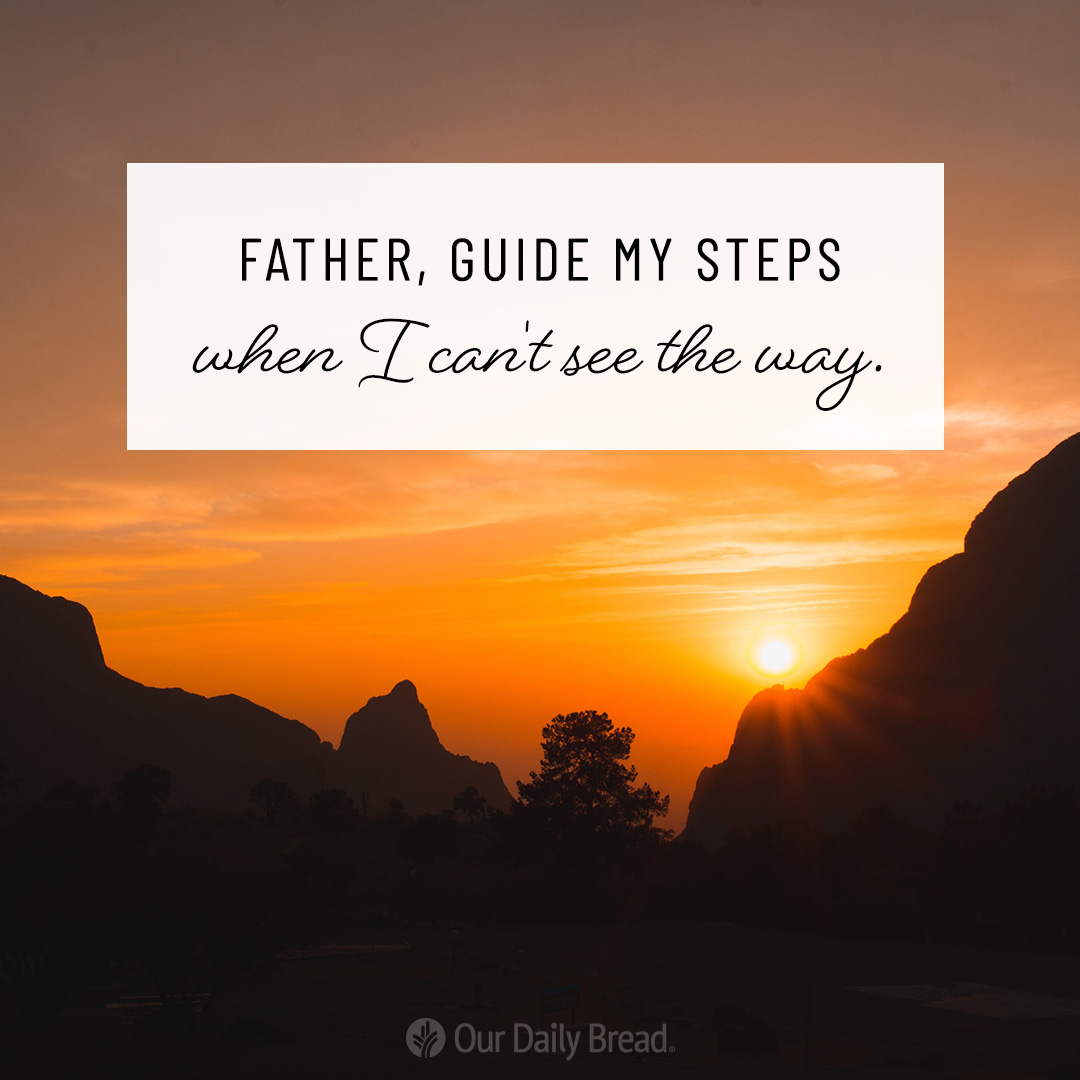Plans and Providence
In 2000, an upstart company operating on a movie-rental-by-mail system offered to sell their company for $50 million to Blockbuster—the home movies and video game rentals king at that time. Netflix had roughly 300,000 subscribers, while Blockbuster had millions and millions of them. Blockbuster passed on the opportunity to purchase their little competitor. The result? Today Netflix has more than 180 million subscribers and is worth nearly $200 billion. As for Blockbuster, well . . . it went bust. None of us can predict the future.
We’re tempted to believe that we’re in control of our lives and that our plans for the future will succeed. But James says, “You are a mist that appears for a little while and then vanishes” (4:14). Life is brief, quick, and more fragile than we often realize. Planning is necessary, but the sin of presumption is in the assumption that we’re in control. That’s why James warns us not to “boast in [our] arrogant schemes,” for “all such boasting is evil” (v. 16).
The way to avoid this sinful practice is through grateful participation with God. Gratitude reminds us that He’s the source of every “good and perfect gift” (1:17). Then when we come to God, we ask Him not to simply bless our present and future plans but to help us join Him in what He’s doing. This is what it means to pray, “If it is the Lord’s will” (4:15).

Just Ask!
The gleeful shouts arising from our basement came from my wife, Shirley. For hours she’d wrestled with a newsletter project, and she was ready to be done with it. In her anxiety and uncertainty about how to move forward, she prayed for God’s help. She also reached out to Facebook friends and soon the project was completed—a team effort.
While a newsletter project is a little thing in life, small (and not so small) things can bring about worry or anxiousness. Perhaps you’re a parent walking through the stages of childrearing for the first time; a student facing newfound academic challenges; a person grieving the loss of a loved one; or someone experiencing a home, work, or ministry challenge. Sometimes we’re needlessly on edge because we don’t ask God for help (James 4:2).
Paul pointed the followers of Jesus in Philippi—and us—to our first line of defense in times of need: “Do not be anxious about anything, but in every situation, by prayer and petition, with thanksgiving, present your requests to God” (Philippians 4:6). When life gets complicated, we need reminders like the one from the hymn “What a Friend We Have in Jesus”: Oh what peace we often forfeit, oh what needless pain we bear, all because we do not carry, everything to God in prayer.
And perhaps in our asking God for help, He’ll lead us to ask people who can assist us.

When You Need Help
It was a Monday morning, but my friend Chia-ming wasn’t in the office. He was at home, cleaning the bathroom. A month unemployed, he thought, and no job leads. His firm had shut down because of the COVID-19 pandemic, and worries about the future filled Chia-ming with fear. I need to support my family, he thought. Where can I go for help?
In Psalm 121:1, the pilgrims to Jerusalem asked a similar question about where to find help. The journey to the Holy City on Mount Zion was long and potentially dangerous, with travelers enduring an arduous climb. The challenges they faced may seem like the difficult journeys we face in life today—trudging the path of illness, relationship problems, bereavement, stress at work, or as, in the case of Chia-ming, financial difficulty and unemployment.
But we can take heart in the truth that the Maker of heaven and earth Himself helps us (v. 2). He watches over our lives (vv. 3, 5, 7–8) and He knows what we need. Shamar, the Hebrew word for “watches over,” means “to guard.” The Creator of the universe is our guardian. We’re in His safekeeping. “God took care of me and my family,” Chia-ming shared recently. “And at the right time, He provided a teaching job.”
As we trust and obey God at every step of our journey, we can look ahead with hope, knowing we’re within the protective boundaries of His wisdom and love.

Landing Spot
The impala, a member of the antelope family, is able to jump up to ten feet high and thirty feet in length. It’s an incredible feat, and no doubt essential to its survival in the African wild. Yet, at many impala enclosures found in zoos, you’ll find that the animals are kept in place by a wall that’s merely three feet tall. How can such a low wall contain these athletic animals? It works because impalas will never jump unless they can see where they’ll land. The wall keeps the impalas inside the enclosure because they can’t see what is on the other side.
As humans, we’re not all that different. We want to know the outcome of a situation before we move forward. The life of faith, however, rarely works that way. Writing to the church at Corinth, Paul reminds them, “We live by faith, not by sight” (2 Corinthians 5:7).
Jesus taught us to pray, “Your will be done, on earth as it is in heaven” (Matthew 6:10). But that doesn’t mean we’ll know His outcomes beforehand. Living by faith means trusting His good purposes even when those purposes are shrouded in mystery.
In the midst of life’s uncertainties, we can trust His unfailing love. No matter what life throws at us, “we make it our goal to please him” (2 Corinthians 5:9).

The Course of a Lifetime
“There are different questions a young artist can ask,” says singer/songwriter Linford Detweiler of Over the Rhine. “One is, ‘What must I do to be famous?’” Detweiler warns that such a goal “swings the door open to all manner of destructive forces from both within and without.” He and his wife have instead chosen a less flashy musical road in which they “continue to grow over the course of an entire lifetime.”
The name of Jehoiada isn’t readily recognized, yet it’s synonymous with a lifetime of dedication to God. He served as priest during the reign of King Joash, who for the most part ruled well—thanks to Jehoiada.
When Joash was just seven years old, Jehoiada had been the catalyst in installing him as rightful king (2 Kings 11:1–16). But this was no power grab. At Joash’s coronation, Jehoiada “made a covenant between the Lord and the king and people that they would be the Lord’s people” (v. 17). He kept his word, implementing badly needed reforms. “As long as Jehoiada lived, burnt offerings were presented continually in the temple of the Lord” (2 Chronicles 24:14). For his dedication, Jehoiada “was buried with the kings in the City of David” (v. 16).
Eugene Peterson calls such a God-focused life “a long obedience in the same direction.” Ironically, it’s such obedience that stands out in a world bent on fame, power, and self-fulfillment.